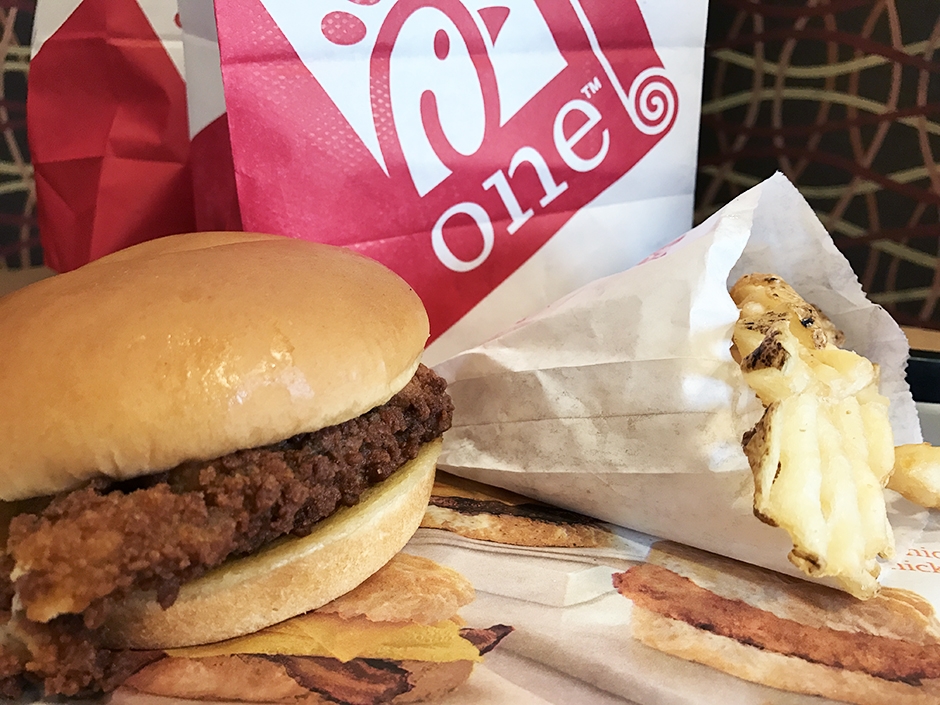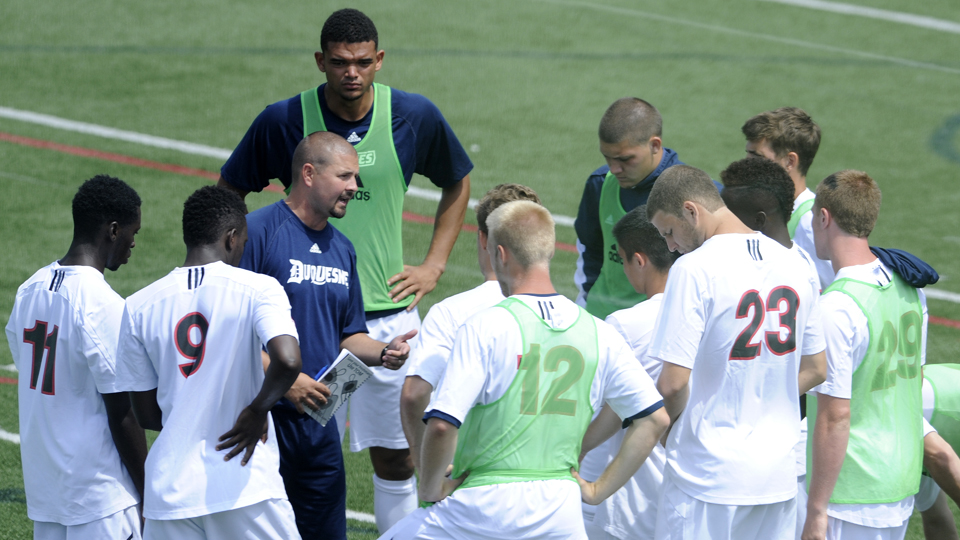

03/28/2019
By Ollie Gratzinger | Opinions Editor
It turns out that your spicy chicken sandwich still comes with a side of homophobia: In a less-than-shocking report by ThinkProgress, it was revealed that Chick-fil-A has continued to donate to anti-LGBTQ+ causes despite claiming otherwise in 2016.
The company had vowed to cut donations with all “contributions that could be deemed offensive,” aside from the Salvation Army, according to ThinkProgress. But the numbers from 2017 show continued donations to the Fellowship of Christian Athletes (FCA), which prohibits its employees from engaging in homosexual acts and imposes upon them a “sexual purity policy.” In 2015, the FCA released an article comparing homosexuality to the unhealthy habit of smoking cigarettes. In 2017, Chick-fil-A donated more than $1 million to the organization.
When the Chick-fil-A first came to Duquesne’s campus last year, student advocates for the queer community voiced concern regarding the university’s choice to include an organization that knowingly supports exclusionary groups. Their concern was met with harsh criticism and public censure. Apprehension existed because Chick-fil-A financially supported — and continues to support — organizations that deny LGBTQ+ individuals’ right to exist authentically. As far as I’m concerned, that apprehension still exists, even if it was snubbed, belittled and reduced by the folks who controlled the narrative.
Chick-fil-A denies claims of homophobia, purporting that they have no policy of discrimination.
“We have never donated with the purpose of supporting a social or political agenda. There are 140,000 people — black, white; gay, straight; Christian, non-Christian — who represent Chick-fil-A,” the company said in a statement to ThinkProgress. “We are the sum of many experiences, but what we all have in common is a commitment to providing great food, genuine hospitality and a welcoming environment to all of our guests.”
It’s a nice thought. The words are pacifying and pretty. But if they’re true, Chick-fil-A ought to put its money where its mouth is.
There are tons of Christian organizations that are affirming of everyone, regardless of sexual orientation. Q Christian Fellowship, for instance, works toward encouraging a world to embrace the Christian principle of unconditional love.
“By gathering together, embracing our differences, and celebrating our shared trust in God’s love in Christ, we seek to point toward the full inclusivity to which God is calling us,” its website reads. “Just as Jesus led by example in his life on earth, we are dedicated to living out a transformative example of fellowship in the world.”
The Reconciling Ministries Network (RMN), too, aims to include all people in its creed.
According to its website, “Reconciling Ministries Network believes that human sexuality is a good gift from God. RMN is committed to supporting the integration of healthy, loving expressions of sexuality and spirituality for everyone. We celebrate the sexuality and spirituality of same and opposite gender loving persons and pledge to provide resources that lead to a deeper understanding of God’s precious gift.”
Homophobia is not a Christian value. These organizations and the countless others like them prove that Chick-fil-A can maintain its spiritual base without endorsing exclusionary ideas. Besides, wouldn’t it be more Christian to donate to organizations that help the marginalized than to one that tells student athletes it’s not okay to be gay?
I’ve eaten at Duquesne’s Chick-fil-A, even after the initial controversy. As a queer person and activist, I’d convinced myself that there were bigger battles to fight, and I’ve fought them with a belly full of nuggets. It sometimes feels like there’s no such thing as ethical consumption when so many organizations hand off checks to corporations that support one evil or another, but it doesn’t hurt to try. Maybe the $7 I’d shell out for lunch won’t make a difference in the long run, but now, it’s a matter of principle. It feels healthier — morally and probably physically, too — to go elsewhere, and elsewhere is exactly where I’ll be going from now on.



